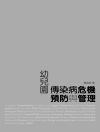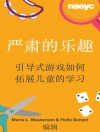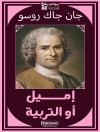Bringing together prominent scholars, this book shows how 21st-century research and theory can inform everyday instructional practices in early childhood classrooms (Pre K-3). Coverage includes foundational topics such as alphabet learning, phonological awareness, oral language development, and learning to write, as well as cutting-edge topics such as digital literacy, informational texts, and response to intervention. Every chapter features guiding questions; an overview of ideas and findings on the topic at hand; specific suggestions for improving instruction, assessment, and/or the classroom environment; and an engrossing example of the practices in action.
Tabella dei contenuti
I. Influences on Literacy Development
1. Parent Involvement Supporting Early Literacy Achievement: Best Practices for Bridging the Home and School Environments, Beth M. Phillips, Kylie S. Flynn, Galiya A. Tabulda, Smriti Jangra, and Christopher J. Lonigan
2. A Comprehensive Approach to Building Oral Language in Preschool: Prerequisites for Literacy, Allyssa Mc Cabe
3. Working with Culturally and Linguistically Diverse Students: Lessons Learned from Reading Recovery, Catherine Compton-Lilly
4. Supporting Language and Literacy Development in Quality Preschools, Shannon Riley-Ayers
II. Materials and Texts
5. Early Literacy Development in the Digital Age, Jackie Marsh and Dylan Yamada-Rice
6. What, When, and How Electronic Media Can Be Used in an Early Literacy Classroom, Annie M. Moses
7. New Perspectives on Literature for Young Children, Diane M. Barone and Andrea Morency
8. Read All about I.T.!: Informational Text in the Early Childhood Classroom, Lynne M. Watanabe and Nell K. Duke
III. Reconceptualizing Developmentally Appropriate Practice
9. Phonological Awareness and Alphabet Knowledge: The Foundations of Early Reading, Marcia Invernizzi and Laura S. Tortorelli
10. Reading to Learn from the Beginning: Comprehension Instruction in the Primary Grades, Katherine A. Dougherty Stahl
11. Best Practices in Oral Vocabulary Instruction, Susan B. Neuman and Tanya S. Wright
12. Real Books, Real Reading: Effective Fluency Instruction for Striving Readers, Melanie R. Kuhn, Kristina Zukauskas Phelan, and Paula J. Schwanenflugel
13. Best Practices in Early Writing Instruction, Deborah Wells Rowe and Tanya R. Flushman
14. Strengthening Play in Early Literacy Teaching Practice, Kathleen A. Roskos and James Christie
IV. Intervention and Assessment
15. ‘How Am I Doing?’: Students’ Perceptions of Literacy and Themselves, Marla H. Mallette, Peter P. Afflerbach, and Christine E. Wiggs
16. The Interactive Strategies Approach to Early Literacy Intervention, Donna M. Scanlon, Kimberly L. Anderson, and Frank R. Vellutino
17. An Evidence-Based Approach to Response to Intervention, Monica T. Billen and Richard L. Allington
Circa l’autore
Diane M. Barone, Ed D, is Foundation Professor of Literacy Studies at the University of Nevada, Reno. Her research focuses on young children’s literacy development and instruction in high-poverty schools. Dr. Barone served as the editor of Reading Research Quarterly and was a board member of the International Reading Association and the National Reading Conference. She is coeditor of The Reading Teacher with Marla H. Mallette.
Marla H. Mallette, Ph D, is Associate Professor of Literacy Education at Binghamton University. Her research interests include literacy instruction and learning with students of culturally and linguistically diverse backgrounds, and early literacy. She is also interested in literacy research methodologies and has used various methodologies in her own work. Dr. Mallette is coeditor of The Reading Teacher with Diane M. Barone.












